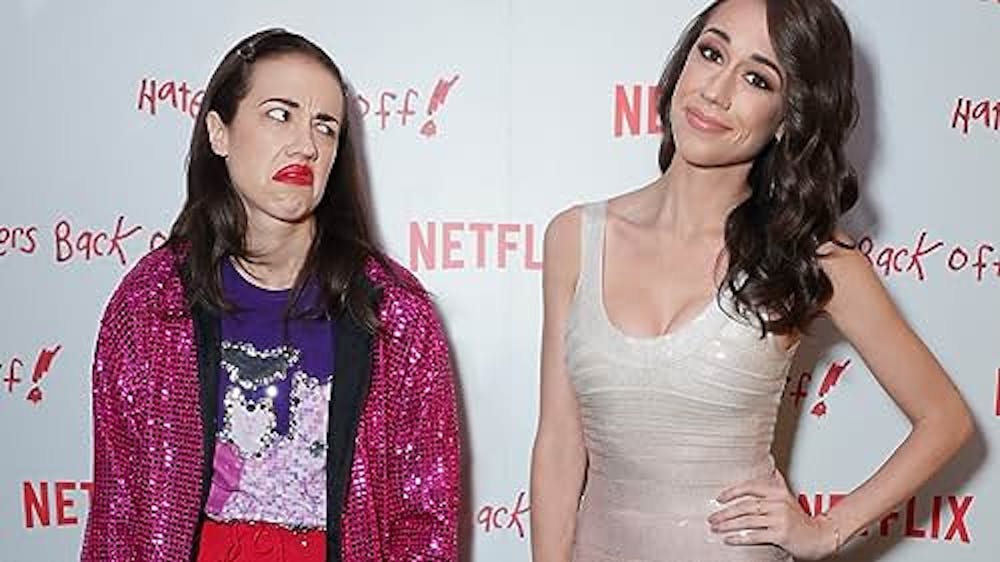By Tristan Weisenbach and Maia Venuti
Arts & Entertainment Editor and Staff Writer
Colleen Ballinger’s “toxic gossip train” seems to have encaptured not only those accusing her of inappropriate behavior, but now other mainstream media organizations too — that is, according to a recent Vanity Fair magazine story.
On July 19, Vanity Fair followed suit of many other news outlets and magazines by publishing an article that, based on its title (“How the Miranda Sings/Colleen Ballinger Scandal Went Off the Rails”), would seemingly tell a familiar rundown of Ballinger’s situation and how it has spiraled out of control. However, after reading through the first few paragraphs of the story, it becomes clear that this article is heavily biased towards Ballinger, going as far as to state that many of the allegations against her are unsubstantiated.
This article was not met with open arms online, and creators like Ethan Klein of the H3 Podcast have come out to defend Adam McIntyre, a former fan of Ballinger who has since released many of the text screenshots supporting the allegations and is mentioned repeatedly throughout Vanity Fair’s article. Klein labeled the story as “misleading” and “intentionally hacky” and lambasted the publication for writing a one-sided narrative. This critique is more than justified, as there was seemingly no attempt by Vanity Fair to obtain input from representative, objective sources.
McIntyre, who is more of the central focus of the article than Ballinger herself, is labeled throughout the piece as “Ballinger’s whistleblower” and his strategy of exposing her actions is described as one that “[assures] viewers of what ‘really’ happened.” After the release of the article, he uploaded a Youtube video titled “vanity fair DEFAMED me.” — a title that speaks for itself. In the 64-minute video, McIntyre systematically goes through and reacts to the story’s fallacies, ripping the publication to shreds for what he can only describe as poor journalism.
In the video, McIntyre also stated that he was not contacted by Vanity Fair with a request for an interview or to provide a statement for the article. When writing an article that mentions McIntyre by name 21 times — especially when painting him as someone who is behind many “anti-Ballinger video[s],” — one would assume that, in order to avoid bias and maintain objectivity, McIntyre would at least be given the chance for input. However, nowhere in the article does it state that Vanity Fair reached out to McIntyre for comment. In fact, on July 20, McIntyre announced on Twitter, now known as X, that the author of the Vanity Fair article has since blocked him on Instagram after the story was published.
Others on Twitter went about debunking the puff piece too, highlighting how the article deliberately makes the timeline murky, how seemingly none of Ballinger’s victims were contacted for a statement and how the language throughout the piece is heavily skewed towards the narrative that Ballinger has been distilling. The article came off as more of an attempt to discredit Ballinger’s accusers rather than covering the situation impartially and summarizing the events up to now.
Throughout the Vanity Fair article, criticism of other mainstream media sources is apparent too, with clear disapproval of a Huffington Post story that uses the word “grooming” to describe Ballinger’s actions and a sentence (with a link to an Entertainment Weekly article) that scolds publications that have changed headlines without issuing corrections in articles regarding Ballinger’s once-alleged blackface performance of Beyonce’s “Single Ladies” (which has since been proven to have not occurred).
While the critique of the latter may be warranted, the former is not. Multiple media organizations have published articles in recent weeks that describe the allegations against Ballinger using terms such as “grooming.” While this may be a troubling claim to make without evidence, Vanity Fair states in its article that in a story published by Rolling Stone that alleges Ballinger took part in “inappropriate behavior,” text screenshots showing what appears to be Ballinger asking a minor for pictures of their body and their virginity status were analyzed and verified by Rolling Stone.
Also, throughout the aforementioned HuffPost article, multiple individuals with first-hand experience of Ballinger’s behavior were interviewed and numerous pieces of evidence to support the allegations of “grooming” were cited. Vanity Fair’s article also describes the reality of some of the mentioned allegations as “unverified” despite HuffPost stating in its article that it too had reviewed text messages and determined that they likely came from Ballinger.
“In the process of reporting, HuffPost spoke to several of Colleen Ballinger’s fans who accused her of ‘grooming’ by maintaining inappropriate relationships with them for years, starting when some of them were minors,” said Paige Skinner, the author of the HuffPost article, in a statement to The Signal. “We firmly stand by our reporting.”
For Vanity Fair — in an article that does not include input or comment from any individuals besides Ballinger’s own legal team — to seemingly downplay the allegations against Ballinger while lambasting other media organizations for reporting on these same allegations that, according to the Vanity Fair article, have “not been interrogated,” not only goes against ethical journalism practices but is simply shameful.
Vanity Fair did not respond to a request for comment.







